If your house is equipped with a Rheem furnace and is louder than usual, it may raise some concerns. Is this normal, or should it be something that you should have checked? Let's take a look at the possible causes of this problem below.
If your Rheem furnace is being louder than usual, then it could be due to the following:
- Loose Blower Wheel
- Worn Blower Motor
- Faulty Draft Inducer Motor
- Damaged Draft Inducer Blower Wheel
- Dirty Furnace Burners
- Cracked Heat Exchanger
- Damaged Blower Belt
- Clogged Air Filter
- Bad Air Duct to Furnace Connection
As you can see, loud noises from your Rheem furnace can mean more prominent issues. In this article, we will look at each of these problems and the warning signs of each. In addition, we will answer other frequently asked questions about the Rheem furnace, so read on!
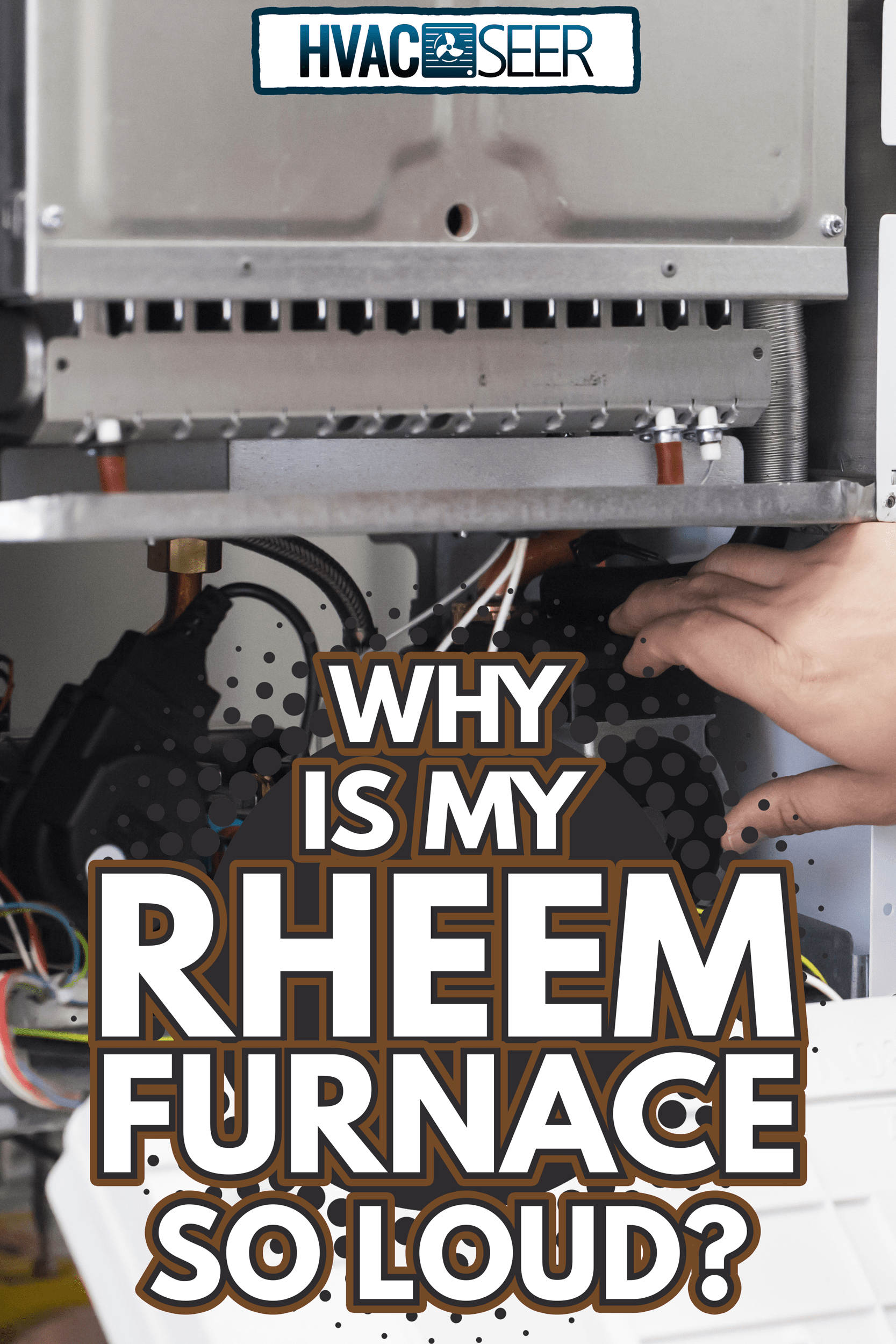
Why Is My Rheem Furnace So Loud?
It is usual to hear your Rheem furnace when it is running. However, when it is being abnormally loud or making noises such as scraping, popping, or banging, it is something you should have checked. Let's look at some of the possible causes of this problem below.
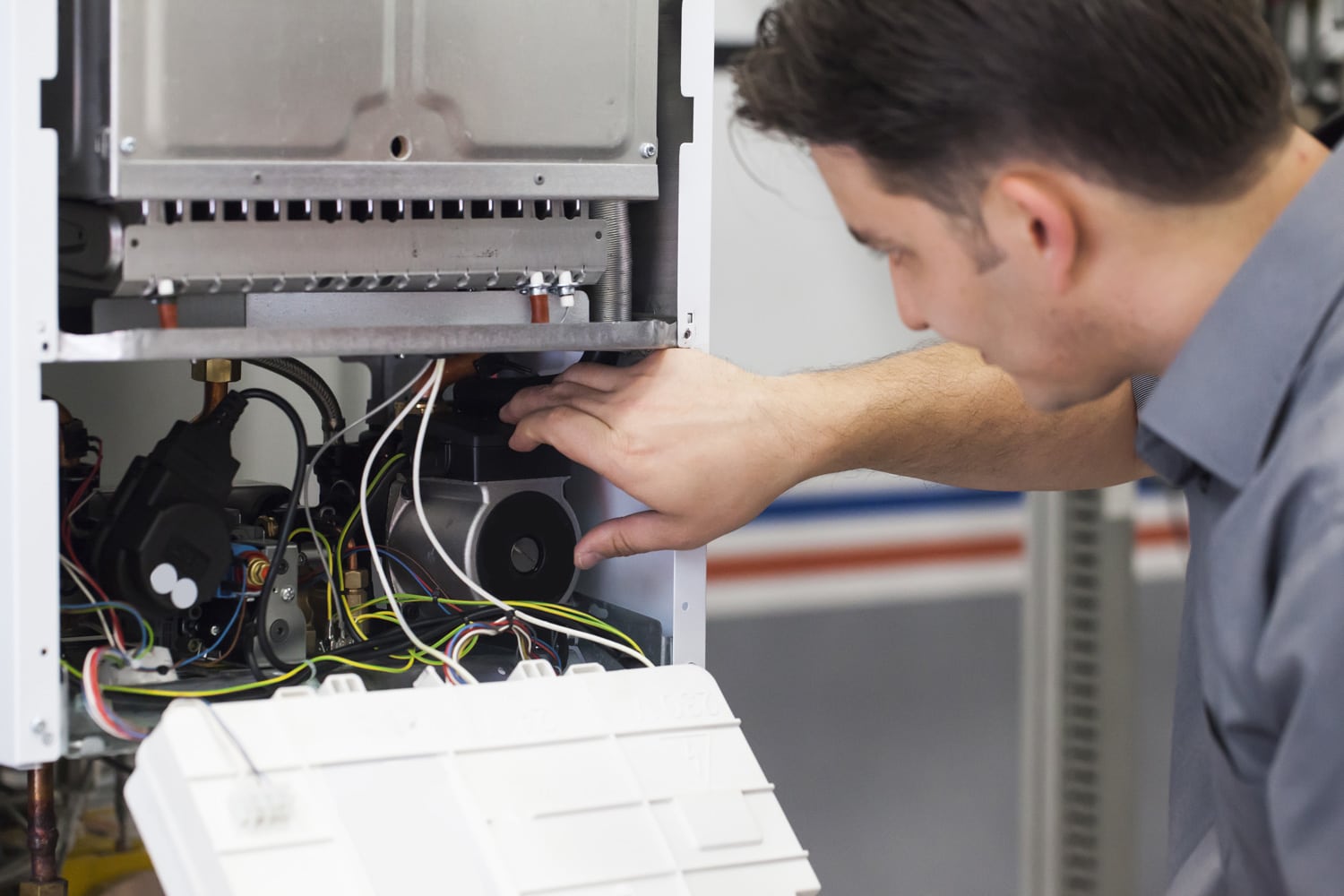
Loose Blower Wheel
If the set screw on the blower wheel is loose, it will wobble on the motor shaft, and the wheel will be noisy as it turns. This can cause the furnace to be louder than usual. To fix this, tighten the set screw using a Phillips head screwdriver.
When tightening the screw, be sure to check that the blower wheel isn't damaged. If it is, be sure to replace it.
Worn Blower Motor
If your furnace's blower motor is too noisy, it may be because the bearings in the motor have worn out over time. You can try lubricating the bearings in the motor yourself to see if that quietens it down.
Remove the motor and apply a drop of oil to each of the four bearings. Be sure to let the oil settle in for a few minutes before replacing the motor.
If lubricating the bearings don't work, you will need to replace the blower motor.
Faulty Draft Inducer Motor
If the draft inducer motor is faulty, it will not draw in enough air, which can cause the furnace to be louder than normal. The draft inducer motor is a small, round fan usually located near the top of the furnace.
If you think that the draft inducer motor may be faulty, you can test it by disconnecting it from the furnace and connecting it to a power source. The motor is good if the fan starts running, and the problem is likely somewhere else.
If the fan doesn't start running, the motor is bad and will need to be replaced.
Damaged Draft Inducer Blower Wheel
The draft inducer blower wheel is responsible for blowing air through the burner system. This helps ensure that the furnace operates efficiently and that the flames are burning correctly.
If the blower wheel is damaged, it needs to be replaced. Damaged blower wheels can cause the furnace to be louder than usual due to factors such as a separated center hub or broken fins.
Dirty Furnace Burners
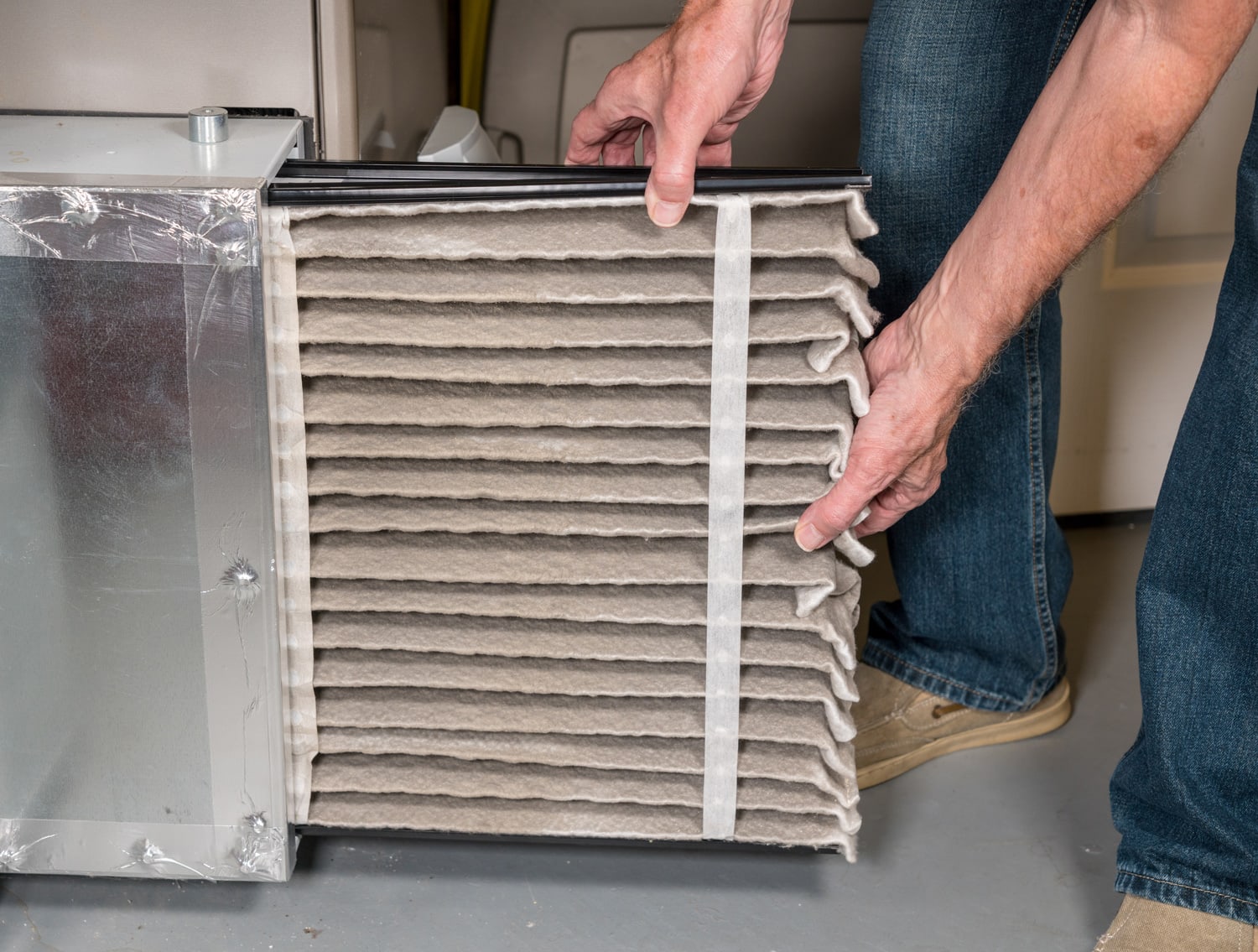
If dirt obstructs the burners, it could prevent the furnace from igniting. In this case, you will need to clean the furnace burners.
To clean the furnace burners, you will need to remove the burner access door. This is usually located at the bottom front of the furnace. Once you have removed the door, use a vacuum cleaner to remove any dirt or dust from the burners. Be sure to also clean the surrounding area.
Replace the burner access door and test the furnace to see if it is now running quieter.
Cracked Heat Exchanger
A cracked heat exchanger is another common cause of a loud furnace. If the heat exchanger is cracked, hot exhaust gases will escape into the home. This can cause the furnace to be very loud and increase your monthly energy bill.
This can also be quite dangerous as carbon monoxide poisoning can occur if the furnace is not properly vented. If you think that your furnace may have a cracked heat exchanger, you should call a professional to inspect it.
Unfortunately, a cracked heat exchange could be mean a total furnace replacement. To avoid this, be sure to do regular maintenance on your furnace. This will help to catch any potential problems before they become too serious.
Damaged Blower Belt
If the blower belt is damaged, it can cause the furnace to be louder than normal. This is because the belt will need to work harder to turn the blower wheel, which will create more noise.
Other warning signs of a damaged blower belt include the belt slipping or coming off the wheel.
Clogged Air Filter
If the air filter is clogged, it will prevent the furnace from receiving enough air. This can cause the furnace to be louder than normal and increase your monthly energy bill.
To avoid this, be sure to change the air filter every three months. You can find the air filter location by looking for a small door on the front or side of the furnace.
Once you have located the air filter, remove it and replace it with a new one. Be sure to check the size of the filter before purchasing a replacement. If you are unsure which type of filter to buy, consult your furnace's owner's manual.
Bad Air Duct to Furnace Connection
If the air duct to the furnace is loose, it can cause the furnace to be louder than normal. This is because the air will be able to escape through the loose connection, which will decrease the furnace's efficiency.
To fix this problem, you will need to tighten the screws on the air duct connection. If you are not sure how to do this, consult your furnace's owner's manual.
Is it normal for a furnace to make noise?
A dull hum is expected when a furnace is running. However, if your furnace is making a louder noise than usual, there may be a problem that needs to be fixed. For example, if the humming is louder than usual, it could mean you have an electrical issue.
In addition, rattling noises are signs that something is loose within the furnace. This could be the blower wheel, the heat exchanger, or the blower motor.
If your furnace is making loud banging noises, there is likely something wrong with the blower belt. A bang can also occur when there is a restriction in the airflow.
Lastly, whistling noises may be caused by a dirty furnace burner or a cracked heat exchanger. If you hear a noise not listed here, it is best to consult your furnace's owner's manual or call a professional.
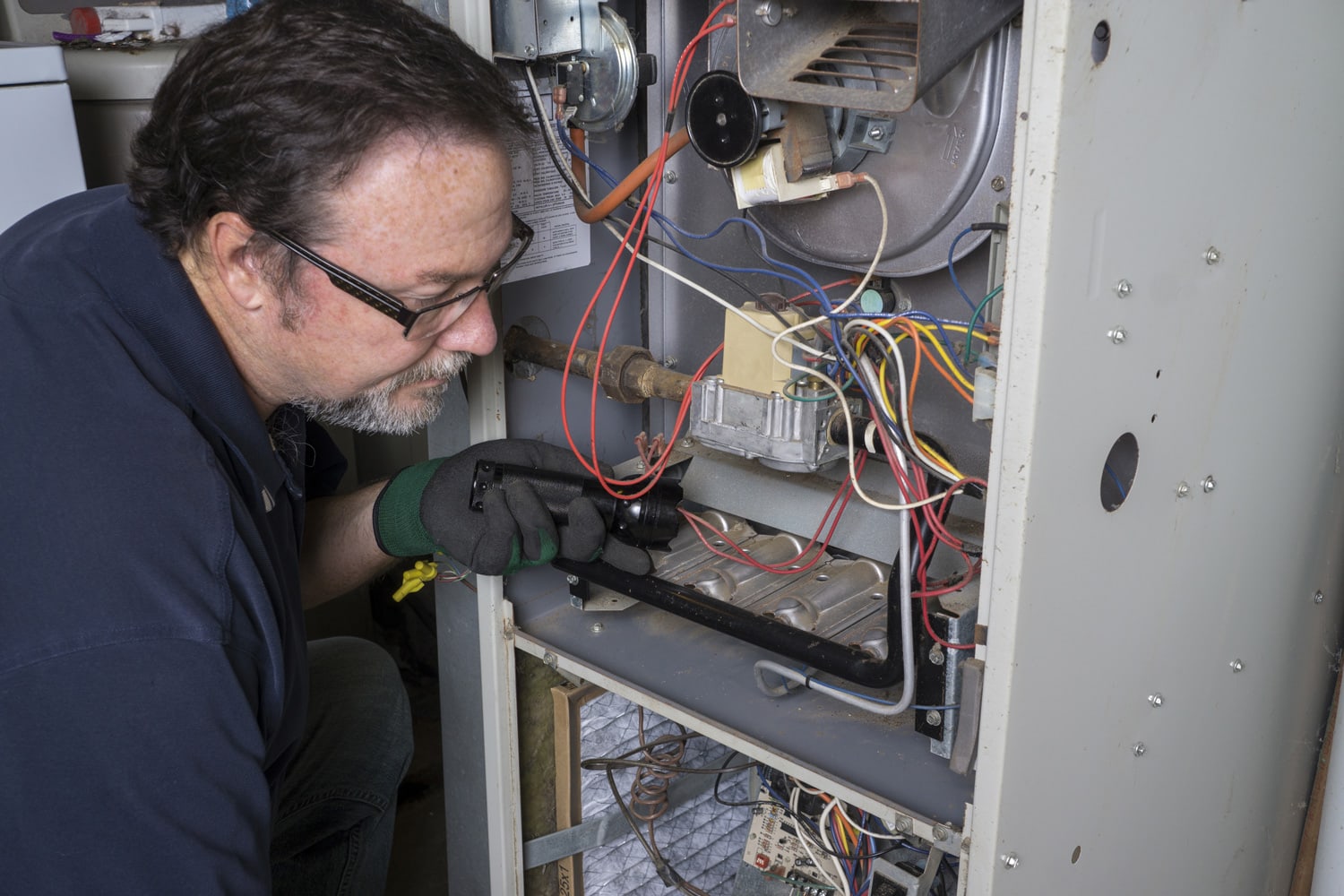
How do I make my furnace sound quieter?
To make your furnace quieter, you will need first to pinpoint the source of the noise. Once you have located the problem, there are several things that you can do to fix it.
For example, if your furnace is too loud because of a dirty burner, you will need to clean the burners. In addition, if the blower belt is damaged, you will need to replace it.
In addition, making your furnace quieter could be pretty simple such as making sure there aren't gaps in your ductwork. You can also buy noise-dampening materials to place around the furnace.
Last, you can have a professional come and inspect your furnace to see if anything can be done to quiet it down.
Is a Rheem a good furnace?
Rheem furnaces are an excellent option for those looking for a high-quality furnace. They provide high-efficiency heating, which can save you money on your monthly energy bills.
Rheem furnaces also have several features, such as a modulating gas valve and a variable-speed blower motor. These features help to increase the efficiency and comfort of your home.
Lastly, Rheem furnaces are backed by a great warranty, providing you with peace of mind. While Rheem furnaces are more expensive, a Rheem furnace is a great option if you are looking for a new furnace.
What is the average life of a Rheem furnace?
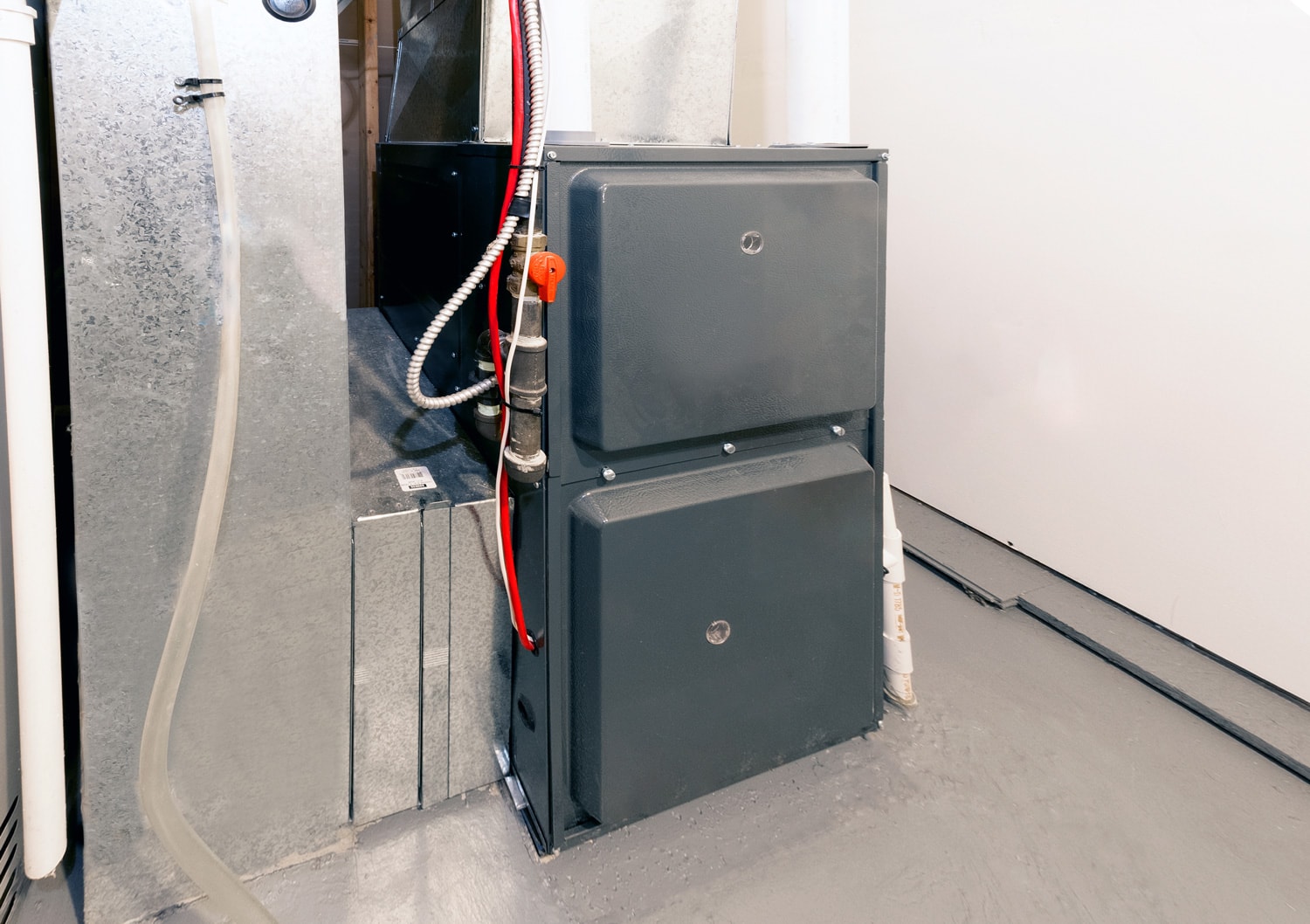
Rheem furnaces have a lifespan of 15 to 20 years. This is based on the average use of the furnace.
If you use your furnace more than average, it may not last as long. In addition, if you are not properly maintaining your furnace, it may not last as long either.
If you want your Rheem furnace to last as long as possible, it is essential to schedule regular maintenance checks. This will help identify any problems and fix them before they become more significant issues.
Final Thoughts
Overall, you won't find a furnace that will make zero noise. However, there are noises to listen for, such as loud bangs, pops, scraping, rattlings, and humming. You'll also want to be aware of a decrease in efficiency if there's more noise than usual and possible repair bills to fix the furnace.
For more articles on Rheem furnaces, check out our website:
How Long Do Rheem Furnaces Last?
